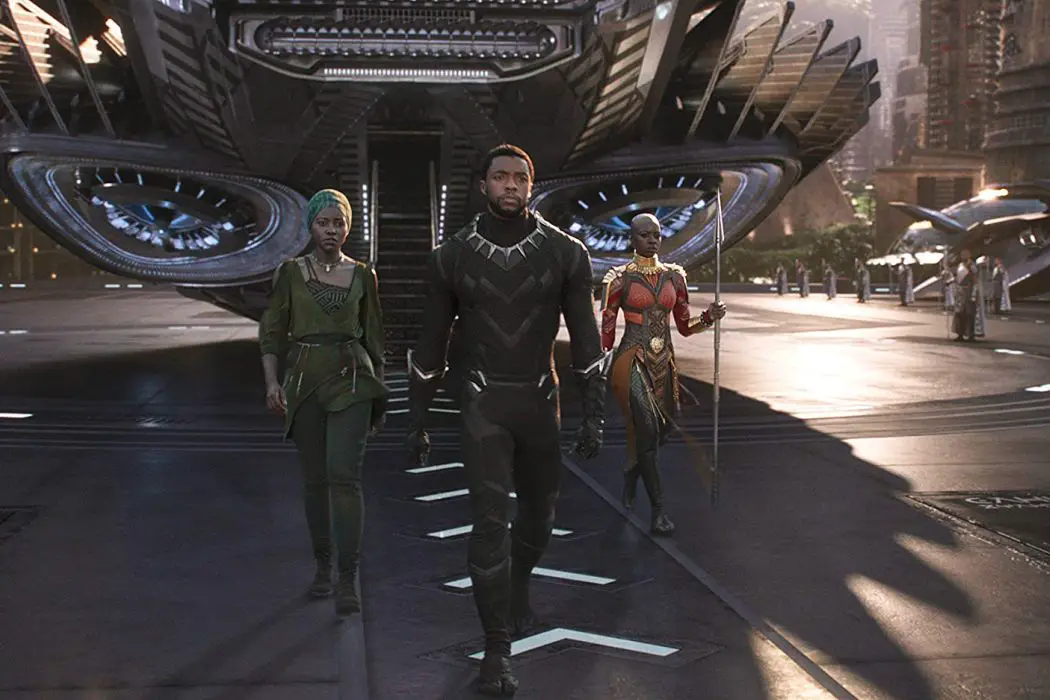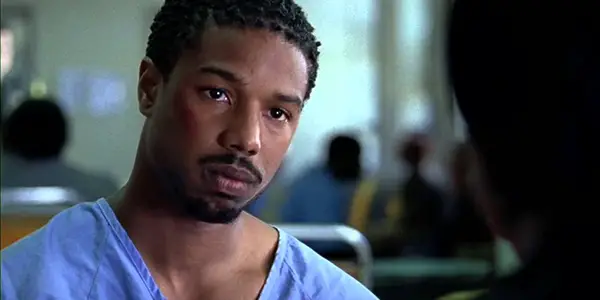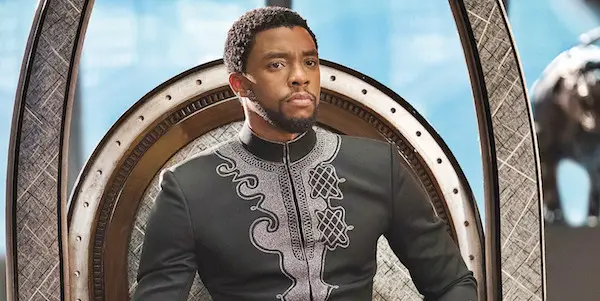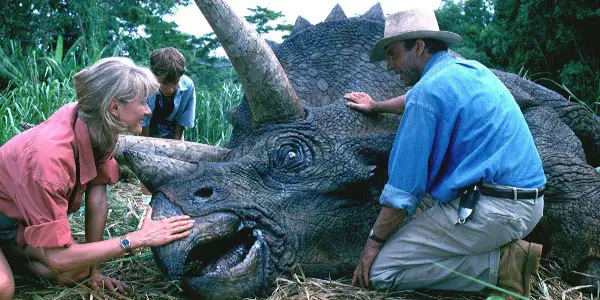Coogler & Spielberg: A Study Of Blockbuster Succession

American-born Actor, Writer and Filmmaker. 27 years of age. Movie-head.…
In the annals of cinema history, there have been few filmmakers that were talented, and fortunate, enough to create both overwhelming, blockbuster movies, and intimate character-driven works that speak to the core of modern-day humanity. With their skillful duality of commercial success and critical acclaim, both Ryan Coogler and Steven Spielberg have reached a level in Hollywood that most filmmakers have only dreamed about.
In this article we will be comparing the two directors and discussing the two projects from each of them that best personify their switch from character-driven dramas (Fruitvale Station, Schindler’s List) to stunning, large-scale action flicks (Black Panther, Jurassic Park). We will also be looking into giving an explanation as to how the former, Ryan Coogler, may potentially be the unspoken successor to the Oscar-winning latter, Steven Spielberg.
Fruitvale Station: A Day in the Life
Fresh out of college at USC, Ryan Coogler directed his first feature film, Fruitvale Station. In the film, we watched as a 22-year old antagonistic protag, Oscar Grant, goes through the last day of the year in 2008 and ultimately, the last day of his life. Meeting friends, family and more before he is gunned down by police officers on a subway platform.

In the ground-level, urban film, Coogler crafts a sympathetic character; flawed and fallible but still loved by many. The MC is often times focusing his charisma and energy in the wrong directions. From talking aggressively about robbing his former employer because he won’t give him back his job, to continually bickering with a dangerous ex-prison mate whilst in and out of prison. Oscar Grant reaches an untimely demise towards the end of the film but as we can see, both his presence and absence are both felt throughout his community.
Although it did it win the “Grand Jury Award” upon its release at the Sundance Film Festival, Fruitvale Station was by no means a blockbuster. It was not a “Summer Hit” or a “Best Movie of the Year” candidate and yet, Ryan Coogler stayed the course, wanting to be a commercially viable name in Hollywood. He would soon get his chance.
Schindler’s List: A Modest Tale of Heroism
In considering the more character-driven works of our cinephillial study-cases, we come to 1993’s Schindler’s List. Directed by Steven Spielberg, this is a story of Oskar Schindler, (played by a young Liam Neeson), a German factory owner living in World War II Poland with a secret that only he and his accountant, Itzhak Stern, played convincingly by Ben Kingsley, can know.
In what starts as an attempt to save money on his business expenses, Oskar Schindler begins to operate several low-level factories, maintained completely by Jewish men and women. Chosen because they were cheaper than Polish workers, all employees of the factories were marked as “essentials”, thus being safe from the hands of German authorities and ultimately death. After Stern is nearly shipped to a concentration camp himself, Schindler sees the true severity of the situation and begins to outright save as many people as he can, instead of casually helping those who are brought to him.

Growing from a selfish businessman and full-on Nazi supporter, to one who sacrifices everything for Jewish families, we are able to see a well-defined character arc in Oskar Schindler, as the effects of the world force him to grow and change.
Unlike the film we spoke about prior to this, Schindler’s List was indeed nominated for several major awards upon its release, including the “Best Picture” honor at the 1993 Oscars. The film would go on to win seven awards on the night and be nominated for five more. Showing his versatility as a director, Spielberg’s character-driven holocaust film would release the same year as his dinosaur mega-hit, Jurassic Park. Both films would go on to gross over $1.3 billion dollars combined.
Black Panther: Coogler’s Ascension
After gaining critical acclaim a few years prior with the indie-drama, Fruitvale Station, Ryan Coogler would be back for more with his right-hand man, Michael B. Jordan. He would also bring along Ludwig Goransson, a trusted composer with whom Coogler had previously worked with on Fruitvale Station. Coogler signed a deal with Marvel Studios and began co-writing the next big thing at Marvel, Black Panther.
Much different from Coogler’s first feature in almost every way, Black Panther was set in the luxurious and utopian world of Wakanda. With several bright and unique characters filling the space, it is safe to assume that Coogler consciously decided to leave the ground-level storytelling of Fruitvale behind for more spectacle-based content; and to much success.

Black Panther, the story of T’Challa, the heir to the throne of Wakanda, is one of family, duty and morality in the face of anger and deceit; and though this film is not heavily touted for its intimate writings and profound thoughts on the human condition, what the film lacks in character-building and depth-widening themes, it makes up for in style and confidence.
With a $200 million dollar filming budget, a soundtrack that would rival most nightclubs in late-night Los Angeles and a cast of all-star Hollywood talent, Ryan Coogler was poised to make history and quickly went on to do so. Scoring seven Oscar nominations and a record-breaking $242 million dollars domestically in its opening weekend, Black Panther would go on to net more than $1 billion dollars total in its international and domestic theater runs combined.
By these numbers, it is clear that Ryan Coogler, an intimate and personal storyteller, also holds the capacity and skill of a juggernaut Hollywood director; able to craft groundbreaking action/adventure films that will keep audiences on the edge of their seats for years to come!
Jurassic Park: High Concept, High Reward
Speaking of blockbuster success, themes of technology and high-concept depictions of larger than life scenarios more so than character; not many movies stack up like 1993’s Jurassic Park. More formulaic than its counterpart in this article, Black Panther, and shot in the same year as previously mentioned Schindler’s List, Jurassic Park is a simple but fast-paced monster flick without much defining purpose. Outside of escaping a dinosaur playground with our character’s lives still intact, there is not much going on any deeper level. There is a sense of Man vs. Science here and thus, Man vs. Nature but where there is potential for meaning and depth, there is not much to be found outside of running and screaming through well-done setpieces.

While taking this film in, you start to notice the lack of character traits that actually matter and quickly begin to shift your attention to the sheer effort and focus put into digitally recreating the beasts that Spielberg has decided to work with. With exceptional graphics and audio (for its time), Jurassic Park would go on to win three Academy Awards for Best Sound, Best Sound Editing for Visual Effects and Best Sound Editing for Sound Effects.
Did you notice how “Best Picture” is nowhere to be found on that list? That’s because all parties involved, and even the voting committee at The Academy, knew that this film was strictly thrill-based; and that’s okay.
Ryan Coogler and Steven Spielberg: Two Peas in a Pod
As an audience, we sometimes put our own expectations on a project, not realizing that it is not our story to tell. Also, that not all films must be one thing or another to be successful. Proving this to be true, both Ryan Coogler and Steven Spielberg have gone on to show their versatility in spades, from a biopic about police brutality and the holocaust, to summer blockbusters about superheroes and dinosaurs that stretch its audience’s imagination to their limits. These storytellers have earned the trust of both major studios and of their respective critics; and although Spielberg shows no signs of slowing down, it’s apparent that Oakland-Native, Ryan Coogler, will be the next “go-to” director for large-scale, spectacle films in the future. His keen attention to detail and the ability to think big will provide him with opportunities to break new barriers and tell captivating stories for years to come.
What I initially saw as a lack of storytelling in films like Black Panther and/or Jurassic Park, is simply a change of direction and ultimately, a slight altering of audience, geared more towards casual “popcorn entertainment”, rather than the more slow-paced, dialogue heavy character studies. I believe Ryan Coogler and Steven Spielberg are the same type of director: talented, visual world-builders, with the ability to also create dynamic characters if need be.
Do you think Ryan Coogler has what it takes to be the next Steven Spielberg? What are your favorite films from these two Hollywood icons?
Does content like this matter to you?
Become a Member and support film journalism. Unlock access to all of Film Inquiry`s great articles. Join a community of like-minded readers who are passionate about cinema - get access to our private members Network, give back to independent filmmakers, and more.













